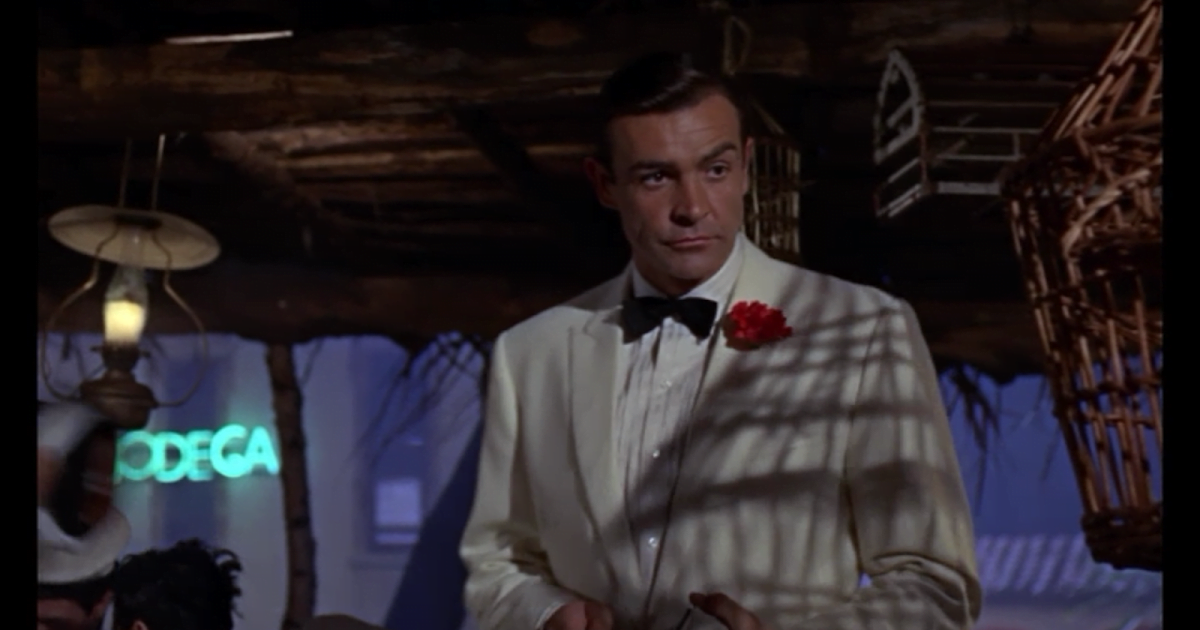
Politicians should read science fiction, not westerns and detective stories.
--- Arthur C. Clarke
I’m a big 007 fan from when I was a kid, but for some reason, I never got around to watching the classic Goldfinger (1964). When I found one of my favourite Youtubers (popcorn in bed) doing her reaction to the movie, I finally watched it and had a ball.
By Emad Aysha
Then I realised something. The eponymous Auric Goldfinger – played by the very German Gert Fröbe – is a Britisher with a foreign accent suspected of smuggling gold around the world to take advantage of the differing prices for the substance in different countries to cash in.
This is remarkably like what happens nowadays when it comes to globalisation, whether it’s mega corporations moving from one regulatory environment in one country to another elsewhere to save on expenses or taking advantage of different exchange rates to make money off the currency markets. Amazingly this movie saw it all coming.
The way Mr Goldfinger is presented says it all. He’s no fool, rating as an evil genius with handpicked minions who know how to do their jobs all too well, but he’s also the classic nouveau riche war profiteer type. There are lots of hints about this along the way. You have the American gangsters working with him, with their heavy accents.
You have endless references to being classy and doing things the way they should – such as drinking champagne at the right temperature – and a funny jibe at The Beatles for how noisy their music is. You have the dinner scene where 007 (Sean Connery) is being asked about how improper the alcohol he’s drinking is while being debriefed about Goldfinger’s smuggling ring. And you have the whole appearance of Mr Goldfinger, with his loud taste in colours, refusal to play fair in golf or poker, and needing to ‘pay’ attractive women to be around him.

SCREEN NASTIES: There's some things money can never buy, shuch as love and more important still, charm. Goldfinger [right] just can't get the sharp end of the point!
The gold bar 007 uses to tempt him is gold bullion from the Second World War. So old money inherited wealth managed by patriotic gentlemen, is being praised in marked contrast to this upstart. Compare that to the trash compactor scene at the junkyard, money made from secondhand goods. Even Goldfinger’s car indicates this: a Rolls Royce ‘replica’ made of gold, so he can smuggle the bullion undetected. Rolls are about as iconic a British car as you can get, making Mr Goldfinger the resident yuppie in the pack!
The 1960s was an era of transition when the old order was beginning to lose control. The movie also implicitly understands that this change of affairs can be chalked down in part to Americanization. You see this with the two CIA agents helping 007, the scene where they’re next to a KFC. The camera ‘lingers’ there longer than it should, and when they rush to track 007’s signal, one must run out of a fast food joint while he’s still eating.
Now here’s the sci-fi connection – Tenet (2020). That Chris Nolan movie portrays England – embodied through Elizabeth Debicki’s character – as at the mercy of evil, slimy, and uncultured Russian gangster and oligarch types. Hence Andrei Sator (Kenneth Branagh). That’s essentially the same scenario you get in Goldfinger. (How ironic that Debicki is half Polish while Branagh is as English as they come). If only James Bond were around to save the day. John David Washington is a bit too middle class for the task, pointed out by the classically English Michael Caine. There’s Robert Pattinson to consider too.
Andrei Sator is a war profiteer, making his first million from trading in uranium pilfered from post-Soviet Russia while also trying to fit in with the glitterati by doing ridiculous sports like yachting. There’s also the globetrotting arms dealer (Dimple Kapadia) from India.
The time-travel plotline is a ploy for condemning global capitalism run amok, the very capitalism driving the temperature of the planet up and destroying the future world. Likewise, Goldfinger’s plot against Fort Knox, in tandem with Communist China, is just a foil for the themes explored in the movie.
You can see this in the opening action sequence when Bond blows up an oil refinery complex run by another bunch of young bloods fomenting revolutions with the help of drug money. (How prophetic given the mantra of Narco-terrorism in the Reagan era and the realities of how heroin and then cocaine went into financing US covert operations from Southeast Asia to Central America).
I’d say that Goldfinger is the superior movie, as great as Tenet was since it was one step ahead for another reason entirely. The bomb that Mr Goldfinger intends to detonate in Fort Knox – to collapse America financially and boost his gold prices – is not a proper atomic bomb but a ‘dirty’ bomb. Now, where have we heard that before?
The neo-cons in the USA get their paranoid ideas from espionage thrillers, their inferior brand of cheesy Cold War novels like Assignment Burma Girl (1961) by Edward S. Aarons. That’s another sci-fi connection for you, the 24 series circa Jack Bauer (Kiefer Sutherland), with every kind of terror plot imaginable hatched against the US, including dirty bombs.
On closer inspection, you find such clichéd antics reveal the inner workings of the mindset governing US foreign policy since American writers and decision-makers alike always ascribe to others what they would do in their place. Aarons practically prefaced the Vietnam War, why the Americans went to that unstrategic slab of land, and inadvertently why they lost.
Goldfinger is practically an SF movie against unbridled capitalism, seeing it as a national security threat, and rightfully so. And it’s so damn entertaining that you don’t care whether it’s ahead of its time. All hail the king of old-world terrific, Sean Connery!






